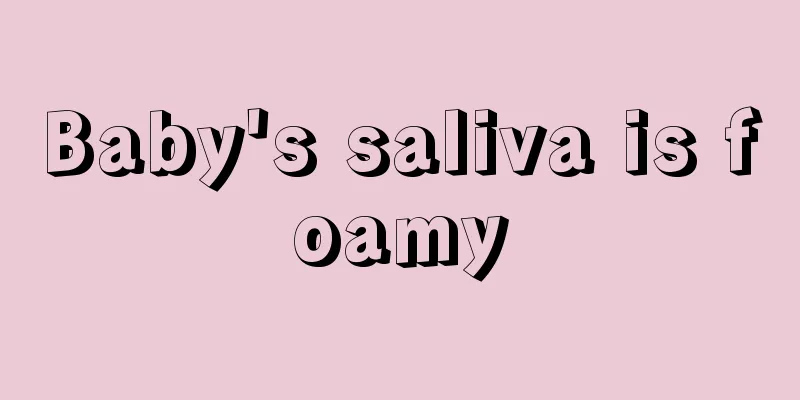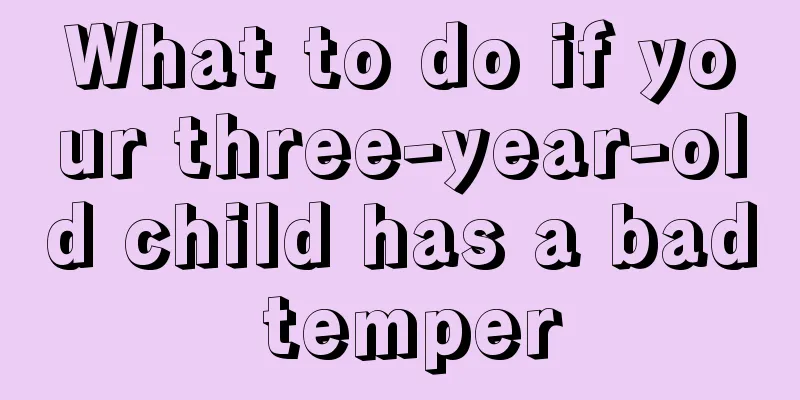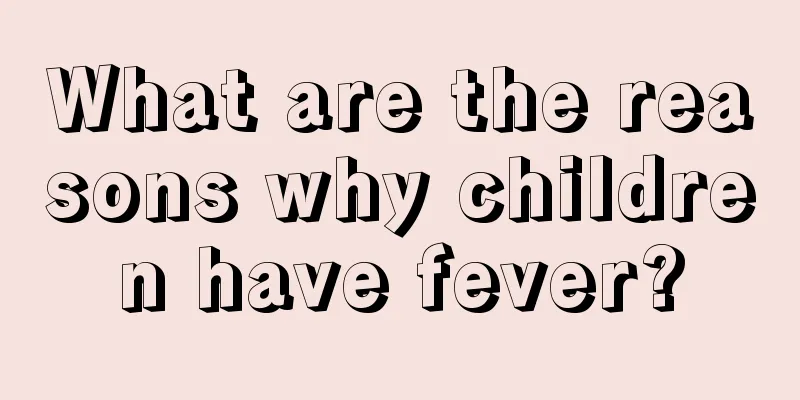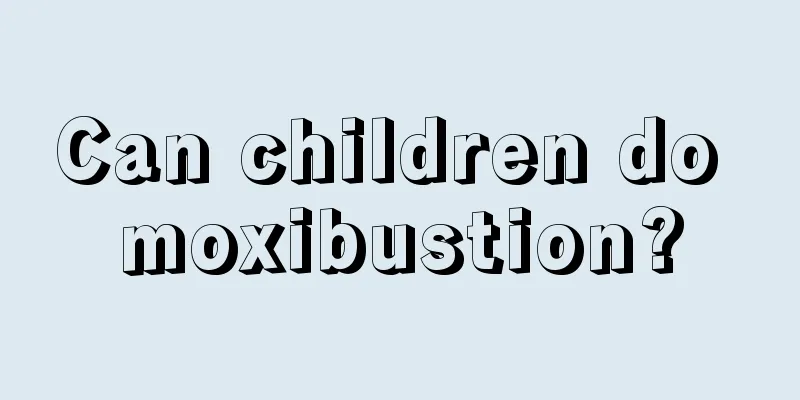Baby's saliva is foamy

|
The presence of foam in the baby's saliva is a phenomenon that many parents encounter when taking care of their children. This problem is generally normal. It is mainly a physiological phenomenon caused by the baby's increased saliva secretion but imperfect swallowing function. Of course, if the child has neonatal pneumonia, there will also be foamy saliva! 1. Reasons why baby's saliva is foamy It is also a normal physiological phenomenon for babies to drool in their mouths. The salivary glands of babies aged 3 to 4 months old gradually mature, and the amount of saliva secretion increases. However, the child's ability to swallow saliva is not yet fully developed, the oral cavity is shallow, and the lip closure and swallowing movements are not coordinated, resulting in frequent drooling or spitting. As long as the baby is in good condition, has no other discomfort, and does not choke on milk, it is normal for him to spit. But babies with pneumonia will also spit saliva and produce bubbles; if they don't cough or choke on milk and are in good spirits, spitting is because the baby is too young and their swallowing function is not yet perfect. However, when the baby is about three or four months old, the salivary glands gradually mature and secrete more and more saliva, and the baby will spit. 2. Causes of neonatal pneumonia (1) Amniotic fluid aspiration pneumonia refers to the fetus inhaling a large amount of amniotic fluid in the uterus or during delivery. It generally refers to the fact that the amniotic fluid is not contaminated. The clinical severity is related to the amount of amniotic fluid inhaled. (2) Meconium aspiration pneumonia is the inhalation of large amounts of amniotic fluid mixed with meconium during delivery or in utero. It is the most common aspiration pneumonia that occurs before or during delivery and is more common in full-term or post-term infants. (3) Milk aspiration pneumonia refers to the inhalation of milk into the respiratory tract during swallowing, causing symptoms such as suffocation and difficulty breathing. 3. Nursing methods for neonatal pneumonia There are usually two types of pneumonia in newborns. One is non-infectious pneumonia and the other is infectious pneumonia. Non-infectious pneumonia often occurs in the early days after a baby is born. The main reason is that it is related to the baby's maturity and the production process. Infectious pneumonia is caused by the baby's respiratory tract infection. If a newborn baby suffers from pneumonia, the baby should be provided with adequate nutrition, calories and water. If the baby is in a serious condition, breastfeeding and medication can be suspended to prevent vomiting and suffocation in the newborn baby. After the condition stabilizes, you should also be careful when breastfeeding, feeding in small amounts and frequently. If a newborn baby suffers from pneumonia, the indoor temperature for the newborn should be between 20℃ and 24℃, the relative humidity should be maintained at 60%, and the indoor air should be kept circulating. At the same time, we should also pay attention to changing the newborn's position frequently to keep the airway open, which is conducive to the discharge of newborn secretions. |
<<: What to use for bathing baby with eczema
>>: How to prepare sea bass as baby food?
Recommend
How many ml should a premature baby eat each time
The digestive function of premature babies is rel...
What to do if a 10-year-old child has phimosis
Most cases of phimosis in children are physiologi...
Why is my baby breathing rapidly?
If the baby is breathing rapidly, parents will de...
What causes bad breath in children?
Bad breath is a common disease problem. Although ...
What are the benefits of children's aerobics?
Every parent must be very concerned about the phy...
Oral muscle training for autism
There are many causes of autism, which most often...
What to do if the baby doesn't want to breastfeed
Most newborn babies are very dependent on breast ...
Can children take medicine for mumps? What kind of treatment is needed?
Mumps in children is more serious because childre...
What should I do if my newborn's vulva is red and swollen?
After a baby is born, all aspects of its skin are...
What are the benefits of skipping rope for primary school students?
Rope skipping is a very simple and convenient spo...
Treatment for baby's nose bleeding
The problem of baby's nose bleeding will caus...
What should be paid attention to during children's circumcision?
If a child has a foreskin that is too long, for t...
Can a six-month-old baby with eye mucus be given an anti-inflammatory injection?
Eye mucus is quite common in our lives, especiall...
What are the causes of red lips in babies?
It is normal for a baby to have rosy lips, but if...
What to do if children have poor memory
It is a very common phenomenon that children have...









